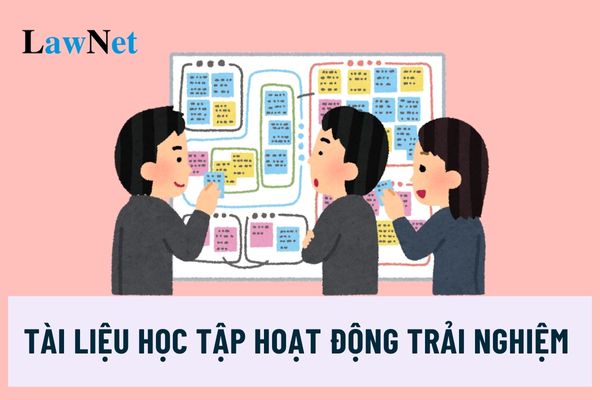Vietnam: What are the learning materials for Experiential Activities of primary school students?
What are the learning materials for Experiential Activities of primary school students in Vietnam?
Under Subsection 1.4 Section 1 of Official Dispatch 3535/BGDDT-GDTH in 2019, the learning materials for Experiential Activities include:
- Learning materials for Experiential Activities assessed by the National Council and issued by the Minister of Education and Training as stipulated in Circular 33/2017/TT-BGDDT.
- Local education content integrated into the program on Experiential Activities organized and assessed by the Provincial/municipal People's Committee under the guidance of the Ministry of Education and Training.
What is the plan for organizing Experiential Activities during a school year in Vietnam?
Under Subsection 1.3 Section 1 of Official Dispatch 3535/BGDDT-GDTH in 2019, the plan for organizing Experiential Activities during a school year is as follows:
- Experiential Activities are stipulated for 105 lessons/year, including 35 lessons of Flag Salute (large group, school level); 35 lessons of Class Activities (large group, class-level); 35 lessons of thematic Experiential Activities, club activities (class-level, class group-level).
The duration allocated for local education content is within the total duration of the Experiential Activities program and is integrated into the four primary types of activities mentioned in Subsection 1.2 Section 1 of Official Dispatch 3535/BGDDT-GDTH in 2019.
- Schools are encouraged to organize out-of-school experiential activities if conditions permit, but must ensure educational goals and student safety.
Besides the contents of Experiential Activities stipulated in the program, educational institutions can organize several out-of-school educational activities, club activities (optional) conducted outside school hours according to the current regulations of the Ministry of Education and Training.
- Based on the scale and content of each specific activity, the organization of Experiential Activities, especially at the grade-level and school-level scales, must involve collaboration with various educational forces: homeroom teachers, head teachers, specialized subject teachers (Music, Art, Physical Education), school board, political, social organizations, parents, sponsors, etc.
Experiential activities organized outside classrooms or schools encourage parental participation and require the Parent Representative Committee's involvement in organizing and managing activities along with the homeroom teacher and the school.

What are the learning materials for experiential activities of primary shool students in Vietnam? (Image from the Internet)
What does the program on Experiential Activities for primary education in Vietnam include?
Under Subsection 1.1 Section 1 of Official Dispatch 3535/BGDDT-GDTH in 2019, the program on Experiential Activities for primary education in Vietnam includes:
- The Experiential Activities program stipulates three content threads for Grade 1: Activities directed towards oneself, society, and nature, and four content threads for Grades 2, 3, 4, and 5: Activities directed towards oneself, society, nature, and career orientation.
- The 2018 General Education Program specifies that local education content integrated into Experiential Activities includes fundamental or current issues about culture, economy, society, environment, career orientation, etc.
What are the perspectives on developing the program on experiential activities for primary school students in Vietnam?
Under Section 2 of the General Education Program on Experiential Activities issued with Circular 32/2018/TT-BGDDT, the perspectives on developing the program on experiential activities for students at all education levels, including primary school students, are as follows:
The Experiential Activities and Career Orientation Program adheres to the viewpoints, objectives, requirements to be achieved, educational plans, educational content, educational methods, assessment of educational results, conditions for implementation, and development of the general education program as stated in the overall Program. It also emphasizes the following perspectives:
- The program is developed based on activity theory, personality theory, experiential learning theory, and general educational theory; the advantages of current extracurricular educational activities and career orientation activities; international experience in developing Experiential Activities Programs and Career Orientation; the cultural identities of different regions, the traditional culture of Vietnam, and the shared cultural values of the era.
- The program ensures integrity, consistency, and continuous development across classes and educational levels. The program is designed both concentrically and linearly, from Grade 1 to Grade 12, with unified activity content strands: Self-directed activities, Social-directed activities, Nature-directed activities, and Career-oriented activities.
- The program ensures openness and flexibility. Educational institutions and teachers actively select content, methods, space, and time appropriate to their circumstances and conditions, based on the principle of ensuring the educational goals and the requirements for qualities and competencies expected for each class and educational level.
>> See the General Education Program on Experiential Activities issued together with Circular 32/2018/TT-BGDDT: Download

